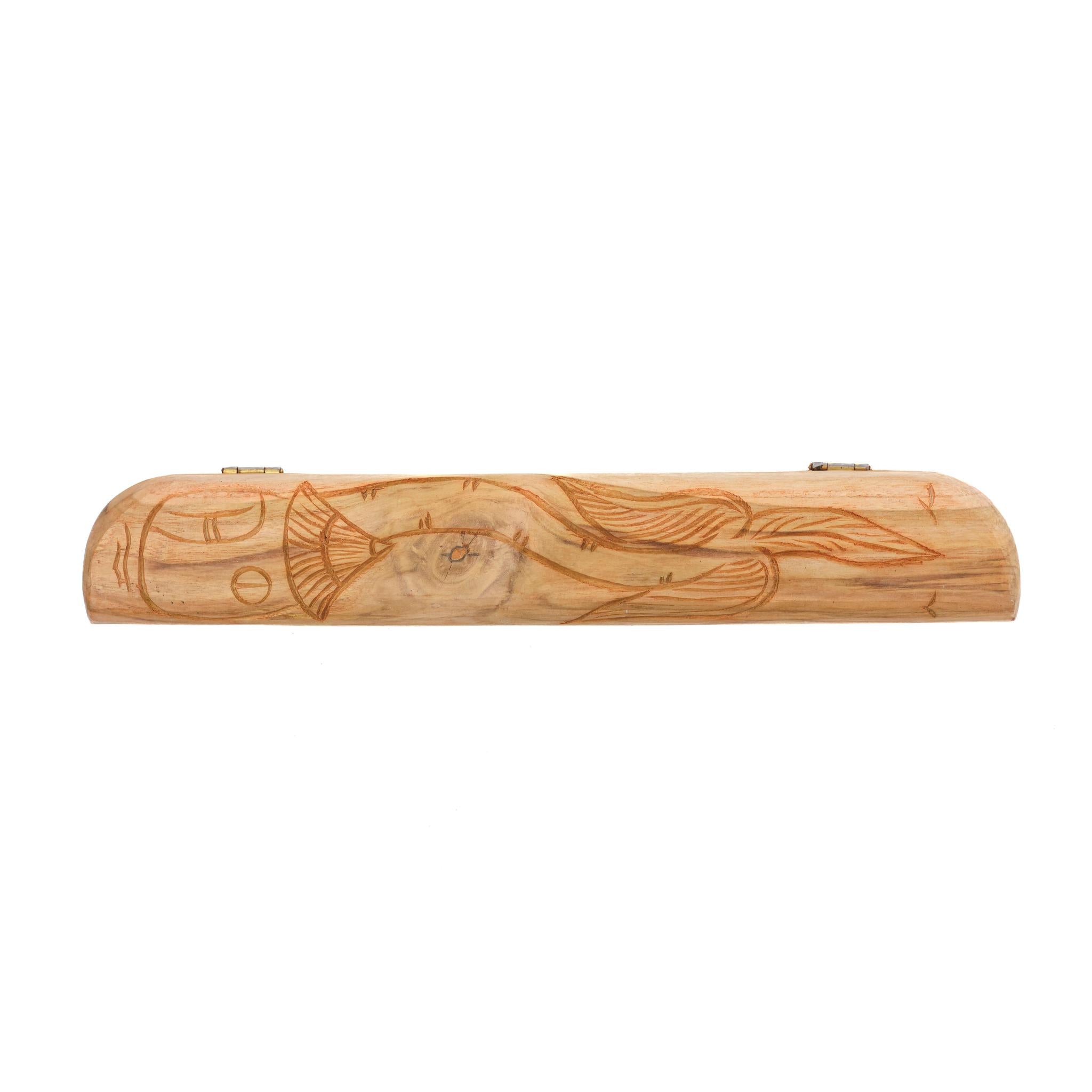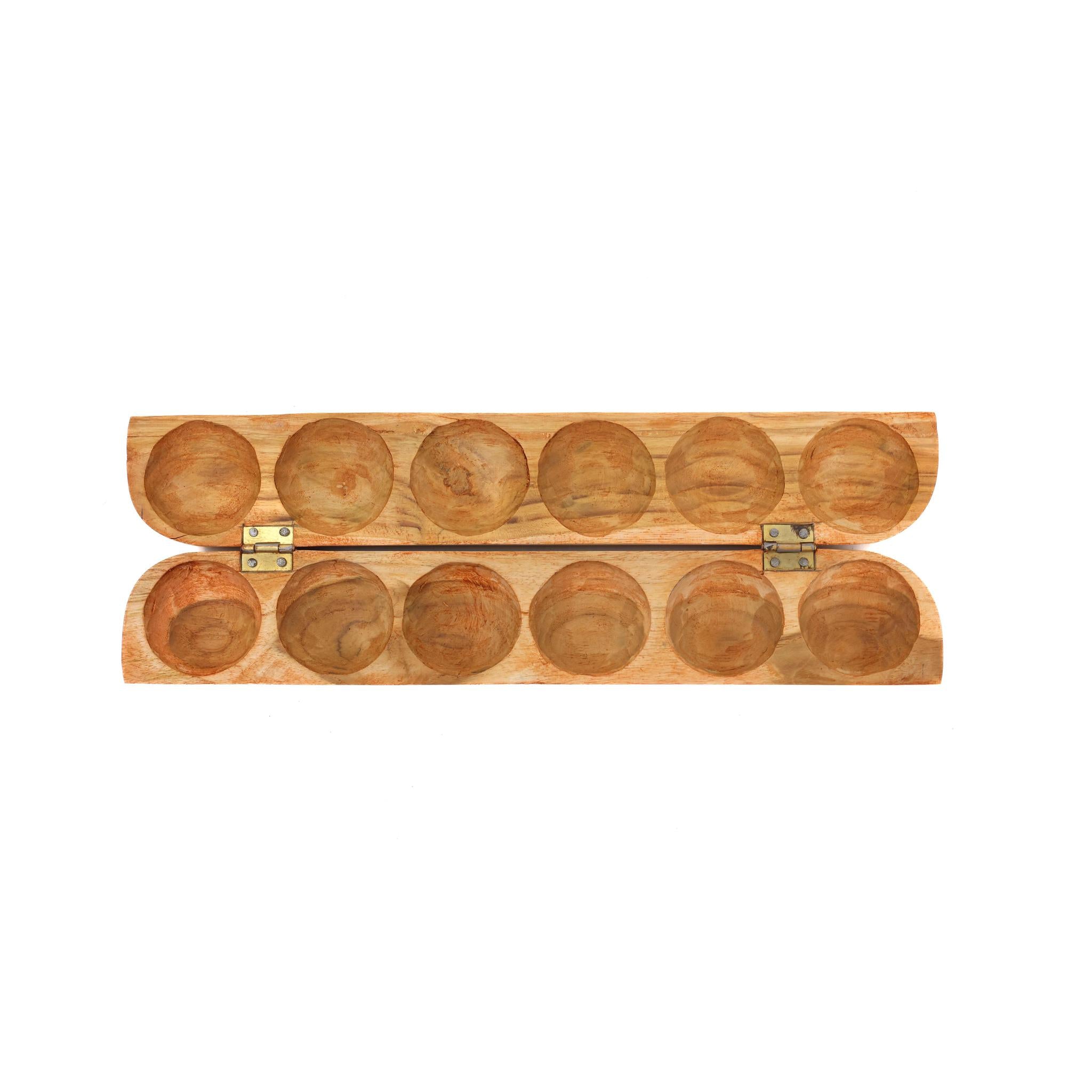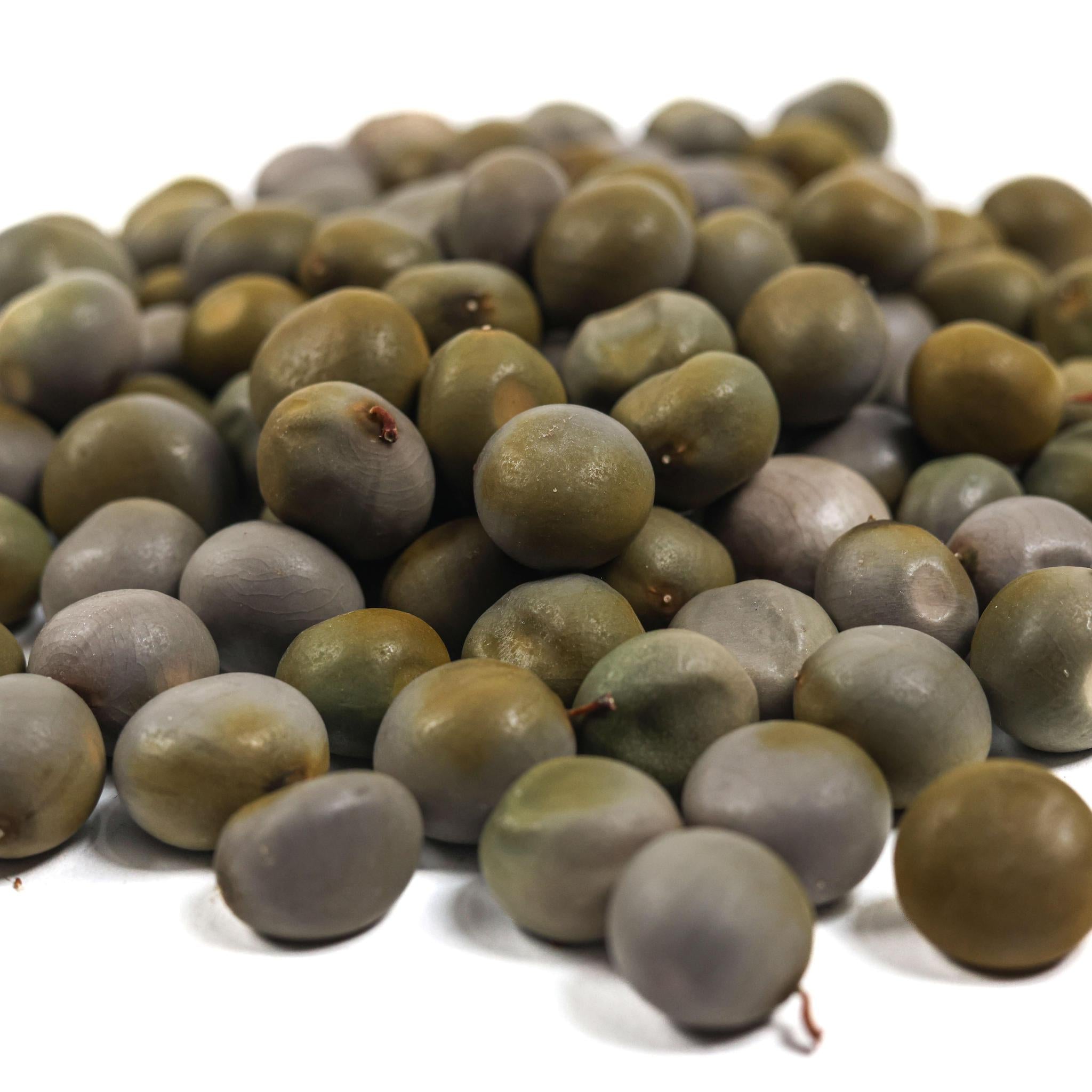Description
Ayo is a traditional game played on a carved wooden board, usually played between two persons, and the objects of play are Ayo seeds. The game is pervasive in Nigeria and some countries in West and North Africa.
NAME: The game is named after the plant that bears its seeds, "Ayo" in Nigeria.
This game is also found in other parts of Africa and is called Mankala. The name mankala, or mancala, as it is sometimes written, is derived from the Arabic word naqala, meaning "to move something around." Mankala is actually a general name for the many variations of the game that are played throughout Africa, as well as many other parts of the world.
Ayo is usually played during the day after work is finished. It is not just a game for the older crowd; many young children learn how to play Ayo to sharpen their math skills. Ayo is generally played by people of the same age group and gender, meaning men play with men, women play with other women, and children play amongst themselves.
Dimension: 16x3x2 (When Closed)
Seeds are Included
Made in Ghana
|
RULES |
|
Ayoayo is played on a board of two rows, each consisting of six round pits, occasionally having a large store at either end. Each pit contains four seeds at the start. A player owns the row closest to him and the store to his right. Initial Position At his turn, a player takes the contents of one of his smaller holes and distributes them, one by one, counterclockwise into the following holes, but not in the stores. If the last seed falls into a non-empty hole, its contents, including the last distributed seed is continued to be distributed. The move ends when the last seed falls into an empty hole. If the last seed falls in an empty hole on the player's own side, the seeds in the opponent's hole directly across and the seed affecting the capture are captured and placed into the store. If the emptied hole contains twelve or more seeds, it is skipped. When the opponent has no seeds in his holes, he must, if possible, get some seeds in the next move. Otherwise, the game is over, and the remaining seeds are captured by the player who moved last. The player who captures the most counters wins the game. ReferencesRuss, L. The Complete Mancala Games Book: How to Play the World's Oldest Board Games. Marlowe & Company, New York (USA) 1984, 28 (first edition). |





